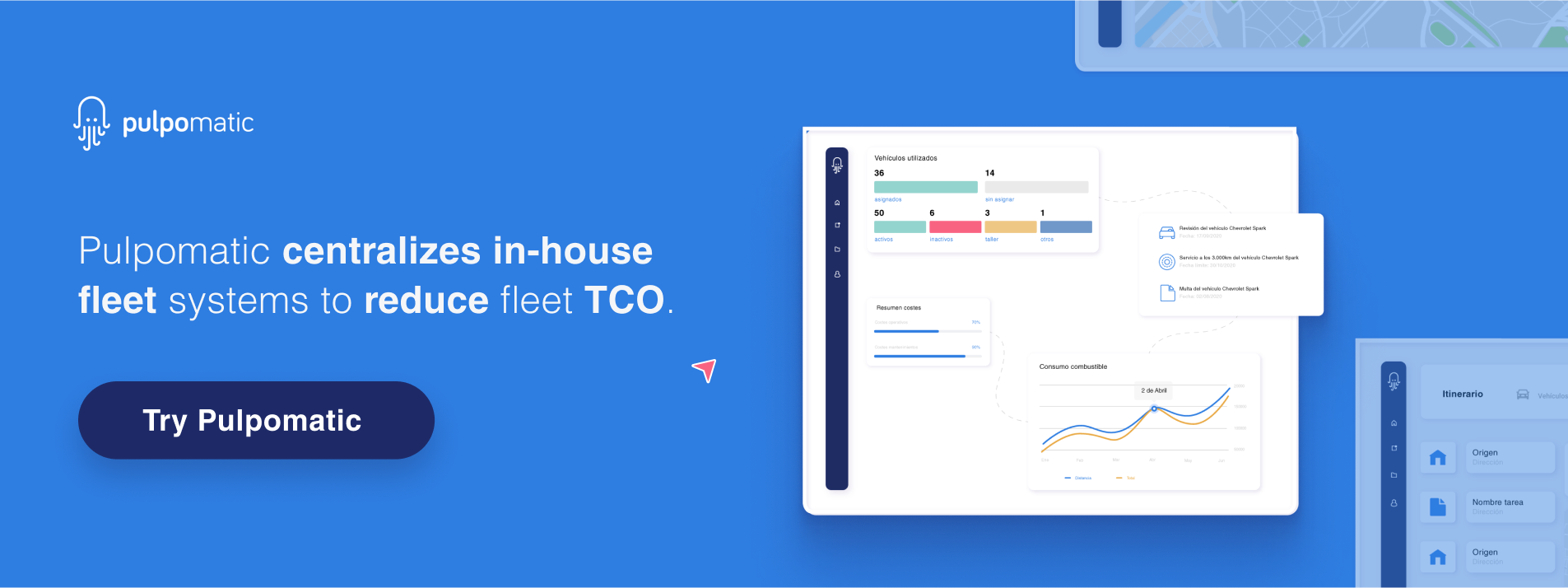Frank Dankovich, the Director of Fleet Sales for FCA said on Automotive Fleet that “fleet managers are on the verge of a data avalanche - now is the time to prepare.”
Like never before, fleet managers have an incredible portfolio of tools to choose from to optimize their fleet systems - GPS tracking, sensors, alerts, ELDs, maintenance, fuel, telematics, compliance, among others, you name it and there is a solution out there. To make matters more challenging, many of these have overlapping features and functionalities. As a result, fleet managers began moving towards solutions that are simple, intuitive, and configurable to fit their operational priorities. Analyzing data from multiple sources results in more operational blindness instead of optimized productivity.
How do you know if your data is actually increasing your productivity? As fleet manager, these are the 8 questions you should ask yourself to find out whether your tools are aligned with your fleet objectives, and most importantly, saving you time:
-
Analysis Time Investment:
Do I need to increase staff to analyze the data? Or can I analyze it myself? Receiving an overwhelming amount of data makes it hard to visualize insights or simply too large to segment. Large fleets may have enough staff to relocate someone to become a data analyst. However, most fleets remain short handed and underfunded - if you can’t make sense of the data yourself, it’s time to reconsider your solution. -
Visibility:
Is this information valuable to management and the C-suite? The fastest way for a FM to get promoted is with data-driven results. C-suite executives love numbers, data, and trends. Therefore, leverage your FMS data to showcase where you found hidden costs and thus contributed to your company’s revenue. You must give visibility to your work at all times and become a reliable partner in the operation. -
Integrations:
Does my FMS integrate with my current fleet solutions ecosystem or do I have to cross data manually? Fleets are moving towards multi-tool ecosystems. This means using a telemetry system to receive driving behavior alerts and idle times, ELD devices to log DOT information, a fuel card, and then another software to track invoices and billing, among others. Mix these with long email threads and calls and it’s quite a mess. Your fleet management solution must have an open API that integrates every other fleet solution under the same platform - this will allow you to automate data, have efficient workflows, and receive trustworthy insights. If you’re relying on excel or manual reports, you’re losing sight of your operation and not making decisions in real time. -
Customer Service:
Do I have a Dedicated Account Manager assigned to my company? Is this person helping me find insights into my fleet data? Or do I have to wait for lengthy email response times? These questions are critical for optimizing your solutions ecosystem. When you contract a service provider, they must work with you hand in hand to become partners. If customer service entails unanswered emails and low contactability, it will harm your tool utilization efforts. -
Prioritization:
Does your solution allow you to prioritize important tasks? Your fleet solution should allow you to customize and align workflows with your company processes so you can maximize productivity. Having dozens of reports and dashboards is not useful if you can’t sync them with your company processes and with what matters most to you. -
Actionable Insights:
Is my data guiding me towards my fleet most pressing issues? Fleet managers use the projector metaphor - you can have fleet solutions projecting plenty of numbers and alerts, but without a backdrop that allows for visibility, there is little benefit for you to take from it. A fleet solution should not only give you numbers, but also guidelines on how to act upon those numbers. -
Tracking Improvements:
Can you trace back your accomplishments and failures with your FMS? This essential question helps you reach your operational goals. If the answer is no, then you should talk to your provider about how to better structure your solution to fit your needs. If such is not possible, you may consider changing providers. -
Driver Collaboration:
Can your drivers benefit from your FMS data? Are you making them part of the optimization process? The best fleet managers are transparent with their drivers - sharing data helps drivers perform better at their jobs, and adds that human touch that numbers ultimately lack. Make drivers part of your data analysis and reward them for aligning with your goals.
These 8 questions offer a robust guideline to find your right fleet solutions partner. The goal of any tool should be to decrease your workload, allow you to use your time proactively, and ultimately operate at lower cost and greater efficiency. That’s the true meaning of ROI.
